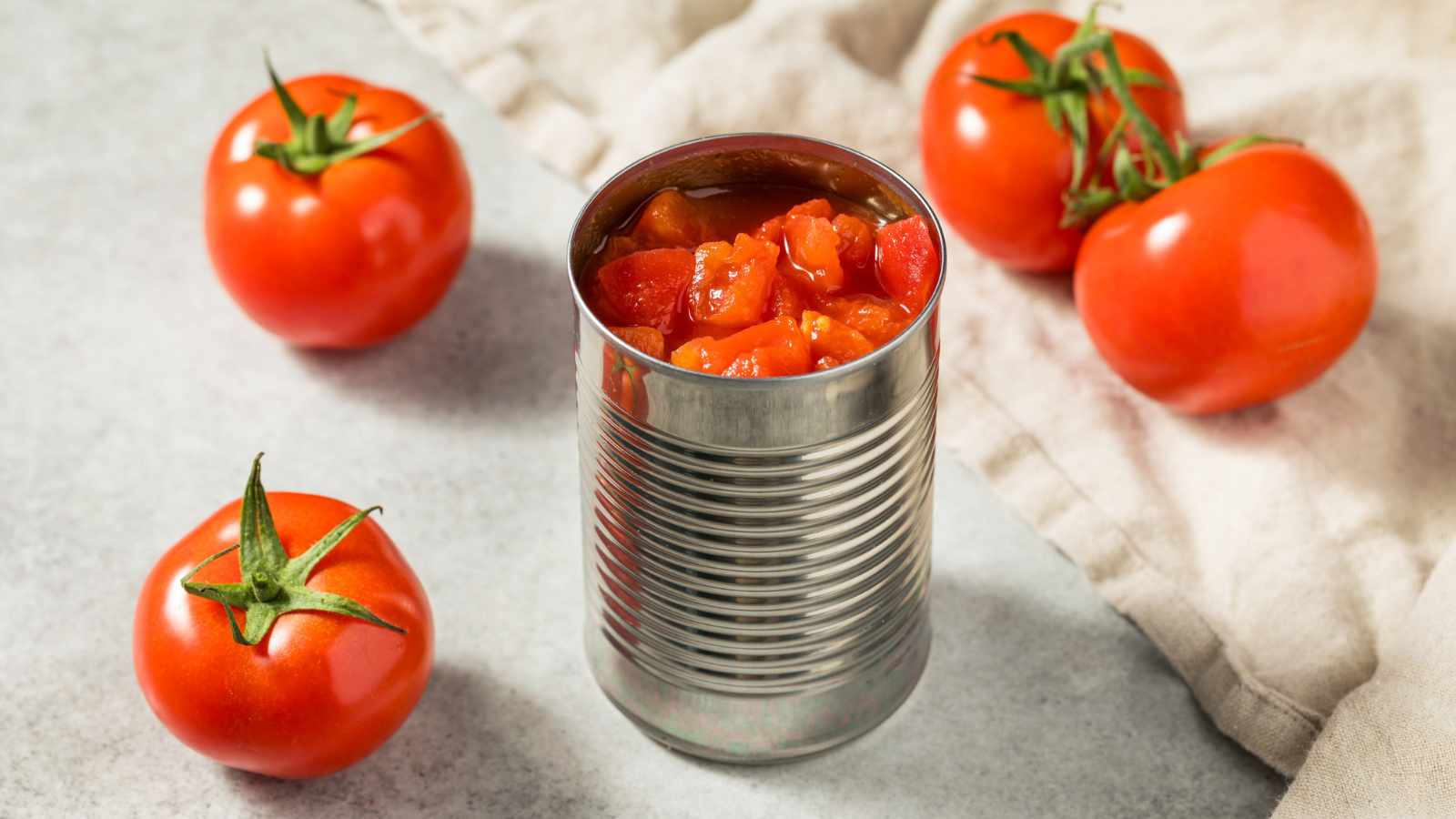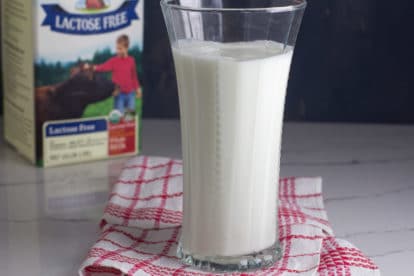Dining out or whipping up a quick meal from store-bought ingredients can sometimes feel like a culinary adventure. But hold your horses! While convenience is a delicious siren song, some grocery items are more akin to a chemistry experiment than actual sustenance. It’s easy to get caught in the trap of brightly colored packaging and enticing claims, yet many processed foods offer little in the way of real, healthy food and a whole lot of extras you probably don’t want.
Understanding what’s truly in our food has become a crucial part of maintaining our health. It’s about being a savvy shopper, reading those fine print labels, and making choices that genuinely support your well-being. Let’s pull back the curtain on some common culprits hiding in plain sight on supermarket shelves.
Frozen Dinners

While convenient for those busy weeknights, most frozen dinners are loaded with sodium, unhealthy fats, and preservatives to maintain taste and texture during freezing. They typically lack fresh vegetables and whole grains. Opting for a quick recipe using pantry staples and fresh ingredients, or even a healthier meal planner, can be a far better choice for your health.
Sugary Breakfast Cereals

Many popular breakfast cereals are sugar bombs disguised as a wholesome start to your day. They’re often loaded with corn syrup, fructose, and other added sweeteners, along with artificial colors and flavorings. A 2019 report by the Environmental Working Group (EWG) found that the average children’s cereal contains more than two teaspoons of sugar per serving. Swapping these out for whole-grain options or oats can make a big difference for your morning diet.
Packaged Baked Goods

Those alluring muffins, donuts, and cookies from the bakery aisle often contain hydrogenated oils, high fructose corn syrup, and numerous additives to extend shelf life and enhance flavor. While delicious in the moment, they offer minimal nutritional value. Many commercially baked goods also lack fiber, an essential component of a healthy diet.
Processed Meats

Bacon, sausages, and hot dogs, while convenient, are often packed with sodium, nitrates, and other preservatives. An analysis published by ScienceDirect linked high consumption of processed meats to an increased risk of chronic diseases. They are a far cry from a healthy protein source. Consider lean, unprocessed meats or vegetarian alternatives for your meals.
Canned Soups

Many canned soups are shockingly high in sodium and often contain flavor enhancers and artificial ingredients. Some varieties can contain over 800 milligrams of sodium per serving, which is a significant portion of your daily recommended intake. Whipping up homemade food with fresh herbs & seasoning is always a more nutritious option. About 70% of the sodium consumed by Americans comes from processed and restaurant foods, according to the FDA.
Instant Noodles

Ah, instant noodles – the college student’s best friend. However, these quick meals are typically low in fiber, protein, and essential vitamins, while being high in sodium and containing questionable additives. They offer quick calories but little in the way of lasting energy or real nutrition. It’s a classic example of food that fills you up but doesn’t nourish.
Pre-Made Salad Dressings

While salads are celebrated for their health benefits, many bottled salad dressings can turn a healthy meal into a calorie- and additive-rich feast. They often contain high amounts of sugar, unhealthy oils, and artificial flavors. Making your dressing with olive oil, vinegar, and fresh herbs & seasoning is a simple yet impactful tip & technique for better health.
Non-Dairy Coffee Creamers

Despite their “non-dairy” label, many coffee creamers are far from natural. They’re often made with corn syrup solids, hydrogenated oils, artificial flavors, and colors. These additives can contribute to inflammation and offer zero nutritional benefits. If you’re looking for a lactose‑free option, consider real nut milks or oat milk. The Global Non-Dairy Creamer Market size is estimated to reach $2.4 billion by 2027, showing its widespread use.
Microwave Popcorn

The convenience of microwave popcorn comes with a side of concern. Many brands contain artificial butter flavorings, preservatives, and sometimes even trans fats. The bags themselves can be lined with chemicals, such as per- and polyfluoroalkyl substances (PFAS), which have been linked to various health issues. Popping your own kernels on the stovetop is a simple, healthy food alternative.
Fruit Snacks

Don’t let the “fruit” in the name fool you. These chewy treats are often more candy than fruit, packed with high fructose corn syrup, sugar, and artificial colors and flavors. They offer little to no real fruit content or fiber. Reach for actual whole fruit for a truly healthy snack. The average American consumes about 17 teaspoons of added sugar daily, much of it from processed snacks.
Flavored Yogurts

While yogurt can be a good source of probiotics, many flavored varieties are loaded with added sugars, artificial sweeteners, and artificial colors. Some single-serving containers can have as much sugar as a candy bar. Opt for plain yogurt and add your own fresh fruit, a drizzle of honey, or a sprinkle of healthy prebiotic fiber for a truly beneficial snack.
Margarine And Shortening

These butter substitutes, often lauded in the past for being “healthier,” are frequently made with partially hydrogenated oils, which are sources of trans fats. Trans fats are notorious for raising bad cholesterol and lowering good cholesterol, posing a significant risk to heart health. Butter, in moderation, or healthier oils like olive oil, are generally preferred for cooking. More than 278,000 deaths each year globally can be attributed to the intake of industrially produced trans fat.
Artificially Sweetened Diet Drinks

While they promise zero calories, many diet sodas and drinks are full of artificial sweeteners like aspartame and sucralose. Research on the long-term health effects of these sweeteners is ongoing, but some studies suggest they may impact gut health and even contribute to sugar cravings. Water, sparkling water with a squeeze of fruit, or unsweetened tea are always better choices.
Pre-Packaged Deli Meats

Similar to other processed meats, pre-packaged deli meats, such as turkey or ham slices, are often loaded with sodium, nitrates, and other preservatives. These can quickly add up, especially if you consume them regularly. They are a common ingredient in many breakfast and lunch sandwiches, so being mindful of their content is crucial for a healthy diet.
French Fries And Onion Rings

These crispy delights, while undeniably tasty, are often deep-fried in unhealthy oils before freezing and then loaded with sodium and artificial flavorings. They offer very little nutritional value and can contribute significantly to unhealthy fat intake. Consider making your own roasted potatoes or sweet potato fries at home for a healthier side dish.
Disclaimer – This list is solely the author’s opinion based on research and publicly available information. It is not intended to be professional advice.
How Total Beginners Are Building Wealth Fast in 2025—No Experience Needed

How Total Beginners Are Building Wealth Fast in 2025
I used to think investing was something you did after you were already rich. Like, you needed $10,000 in a suit pocket and a guy named Chad at some fancy firm who knew how to “diversify your portfolio.” Meanwhile, I was just trying to figure out how to stretch $43 to payday.
But a lot has changed. And fast. In 2025, building wealth doesn’t require a finance degree—or even a lot of money. The tools are simpler. The entry points are lower. And believe it or not, total beginners are stacking wins just by starting small and staying consistent.
Click here and let’s break down how.
5 Easy Steps to Change Any Habit

5 Easy Steps to Change Any Habit
We all click on them with the hope that just THIS time the secret to changing a bad habit or adopting a healthy one will be revealed and we’ll finally be able to stick to that diet, stop that one or ten things that might in the moment make us feel temporarily good but really just make us fat, unhealthy, sad, mad or just frustrated with ourselves.




